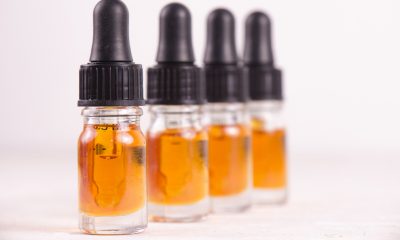A world-first trial studying the effects of transdermal CBD gel in adults with epilepsy has produced promising results.
An Australian study using transdermal CBD gel in adults with focal epilepsy, has found that over half of patients experienced a 50 per cent reduction in seizures after six months.
What is thought to be the world-first Phase 2A trial, looked at the safety of transdermal cannabidiol (CBD) gel in adults with focal epilepsy.
This is the most common form of epilepsy in adults (affecting 60 per cent of patients), and is treatment-resistant in one third of those diagnosed.
Symptoms of a focal seizure include experiencing strange tastes or smells, tingling in the limbs, stiffness or twitching in a certain part of the body and what is described as a “rising” feeling in the stomach, like the sensation when on a fairground ride.
They are sometimes known as “warnings” or “auras” because they can be a sign that another type of seizure is about to happen.

The findings
Run across 14 epilepsy trial centres in Australia and New Zealand, the study found that the use of CBD oil in skin patches was safe, well tolerated and accepted by patients.
The initial double-blind phase of the trial, which took place over 12 weeks in 188 patients, did not find a significant difference in seizure frequency between the patients randomised to one of the two CBD oil treatment arms compared to those randomised to receive placebo (inactive) gel.
However, there was a reduction in seizures by at least 50 per cent in more than half of the patients by month six of the follow-on open label extension trial.
The study was led by Professor Terry O’Brien, director of the Monash University Department of Neuroscience and programme director Alfred Brain.
According to Professor O’Brien, this is the first such trial in the world for the efficacy and safety of a medicinal cannabidiol for the treatment of seizure frequency in adults with focal epilepsy.
“This is the first randomised, double blind, placebo-controlled trial of a cannabidiol in this common group of adult patients, whose seizures currently cannot be controlled with currently available treatments,” he commented.
“The original 12-week trial did not show any difference in effect of the gel between the experimental and placebo group, though the trial did show the gel was safe.
“Importantly, the open label extension of the trial to six months showed a seizure reduction of at least 50 per cent in more than half of the experimental group, making it a promising candidate for further larger and longer trials.”
Professor O’Brien added: “This trial represents an internationally significant, landmark trial, to build an evidence base to support the availability and use of medicinal cannabis based treatments for adults with common forms of epilepsy.”
The findings have been published in the Journal of the American Medical Association (JAMA Open).

 News6 months ago
News6 months ago
 Science5 months ago
Science5 months ago
 Industry6 months ago
Industry6 months ago
 News6 months ago
News6 months ago
 News5 months ago
News5 months ago
 Health5 months ago
Health5 months ago
 News5 months ago
News5 months ago
 Health3 months ago
Health3 months ago











